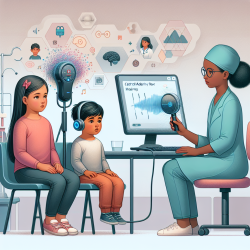The complexities of mental health in conflict-affected areas are profound and multifaceted. A recent study titled "Mental health problems among conflict-affected adults in Grozny, Chechnya: a qualitative study" offers critical insights into the psychosocial challenges faced by individuals in such environments. For practitioners, understanding these challenges is vital to improving therapeutic approaches and outcomes.
Understanding the Context
Chechnya has endured decades of conflict, resulting in widespread trauma and ongoing insecurity. This backdrop has significantly impacted the mental health of its population. The study conducted in Grozny highlights several prevalent mental health issues, including depression, stress, and family-related problems.
Key Findings and Their Implications
The study identified several mental health problems that practitioners should be aware of:
- Bad Psychological Health: This term encompasses general distress and an inability to cope with daily stressors. Symptoms include aggression, social withdrawal, and communication difficulties.
- Depression: Characterized by social withdrawal and functional impairment, depression affects personal health and family relationships.
- Stress and Nervousness: Symptoms include irritability, aggressiveness, and psychological pressure. These issues often lead to physical health problems.
- Family Problems: Conflicts within families are linked to broader community issues such as increased criminality and substance abuse.
Cultural Considerations
The study underscores the importance of cultural sensitivity in mental health care. In Chechnya, traditional norms influence how mental distress is expressed and addressed. Practitioners should consider these cultural factors when developing therapeutic interventions.
Encouraging Further Research
The findings from this study highlight the need for further research into the mental health needs of conflict-affected populations. Practitioners are encouraged to explore the relationship between trauma-related symptoms and chronic stressors. Understanding these dynamics can lead to more effective interventions.
Practical Applications for Practitioners
For those providing online therapy services like TinyEYE, integrating these insights into practice can enhance the quality of care. Consider adopting a flexible, trauma-informed approach that addresses both past trauma and current stressors. Additionally, fostering collaboration with local cultural institutions can improve engagement and outcomes.
To read the original research paper, please follow this link: Mental health problems among conflict-affected adults in Grozny, Chechnya: a qualitative study.










